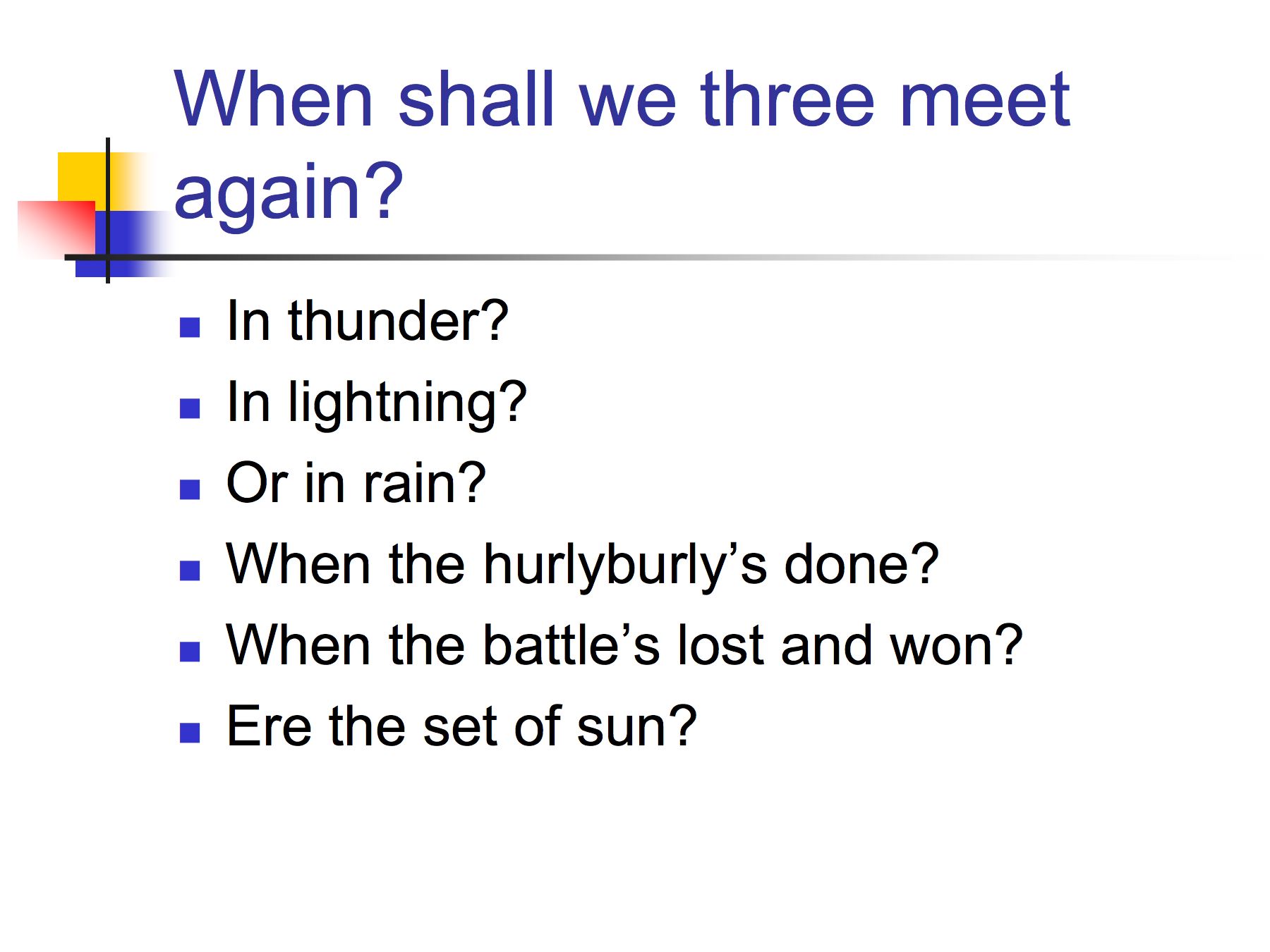It’s time once again to check in on what searches people have done to find themselves at Shakespeare Teacher, and to respond in the name of fun and public service. All of the following searches brought people to this site in the past week.
shakespeare john talbot monologue
There are two John Talbots in Shakespeare, both in Henry VI, Part One. Shakespeare distinguishes them by calling them Lord Talbot (the father) and John Talbot (his son). The son, I believe, only appears in two scenes, found here and here, and doesn’t really have what you’d call a monologue. In both scenes, Lord Talbot wants his son to flee the battle, but the young John Talbot prefers death to dishonor. The father has a larger part in the play, including a number of long speeches throughout the play, but I’m not sure which monologue you’re looking for. Perhaps you could look for a monologue here or here.
ugliest monarchs in history
Well, that’s entirely subjective, but I will nominate Charles II of Spain who is a classic example of what happens when cousins marry.
fairytale influece in shakespeare
For Shakespeare at his most fairy-tale-esque, check out the four Romance plays he wrote towards the end of his career: Pericles, Cymbeline, The Winter’s Tale, and The Tempest. If it’s actual fairies you’re looking for (and even a talking animal), then I’d recommend A Midsummer Night’s Dream. But one play that you might not expect to be influenced by fairy tales is none other than our own King Lear. Check out Love Like Salt to see the retelling of the source fairy tale across a variety of cultures.
utube 5th grade a midsummer night dream
It’s YouTube, and if you go there and search, the most relevant find seems to be this claymation version of the play, created by a fifth-grade class. I’ve directed Midsummer with fifth-graders, and even taped it, but the quality of the tape is too poor for posting. I am working on a number of video projects with 8th graders right now, and I hope to be able to share them with you by the end of next month.
romeo and juliet act 2 scene 1
This is the scene before the famous balcony scene, and it can be found here. Romeo appears on stage, having just left the party where he has met Juliet, and decides to hide from Benvolio and Mercutio so he can go back and find her. As Romeo’s friends search for him, they mock his preoccupation with love. Finally, they give up and leave. The next scene begins with Romeo’s response: “He jests at scars that never felt a wound.” This would seem to indicate that the action is continuous, and that a scene break is unwarranted. But tradition breaks the scene here, and really, who wants to be the first one to mess with the numbering of the balcony scene?
henry viii catherine of aragon using rapidshare
Henry VIII and Catherine of Aragon used Rapidshare until Henry’s break with the Catholic church in the early 1530’s. The Act of Unlimited Bandwidth was introduced into Parliment in 1532, and made Live Mesh the only permissible file hosting service in England. This enraged the Pope, who sent Henry a papal bull of excommunication as a PDF file via YouSendIt. It was his sixth wife, Catherine Parr, who convinced Henry to use Megaupload, which he did until his death in 1547.
I leave the task of responding to the remaining search terms to my readers:
who becomes claudia’s plot against hamlet?
the tempest crossword shakespeare
vitruvian man, thomas jefferson
riddle “marvin the martian” dice
macbeth:in shakespeare time
character analysis of anne boleyn in shakespeare’s henry the eighth
